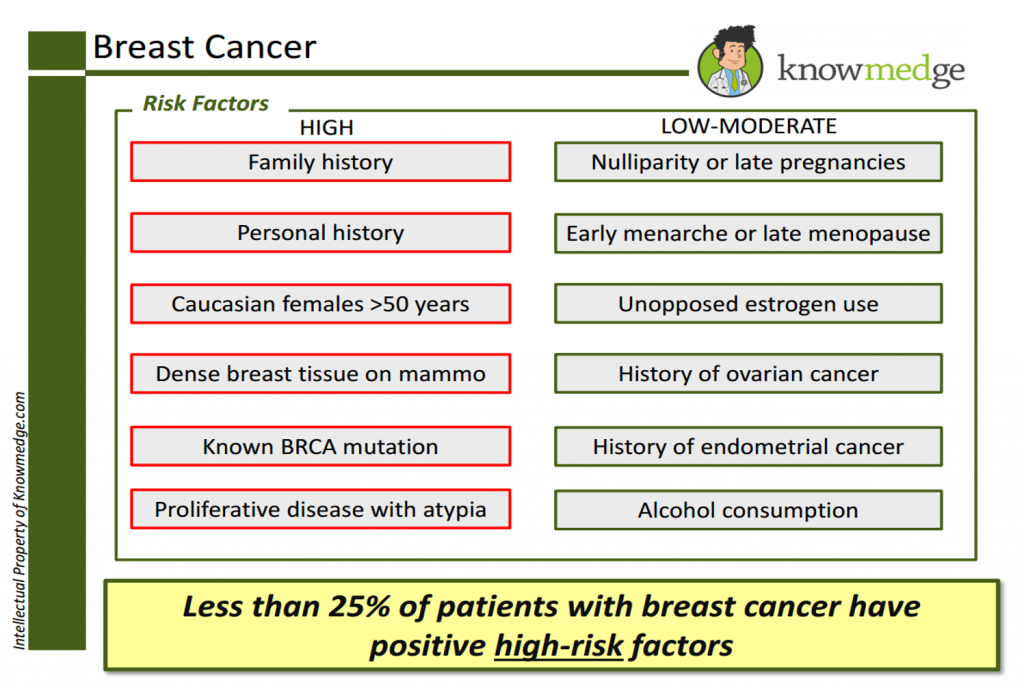USMLE Step 3 Subject Review – Breast Cancer
 Breast Cancer is an important topic to understand for the USMLE Step 3, ABIM, and on other medical exams where internal medicine is a major focus. The following is an excerpt out of Cracking the USMLE Step 3.
Breast Cancer is an important topic to understand for the USMLE Step 3, ABIM, and on other medical exams where internal medicine is a major focus. The following is an excerpt out of Cracking the USMLE Step 3.
- Risk factors include:
- Age (i.e., greater than 50)
- Female
- Family history
- BRCA 1, 2
- Obesity
- Highfat diet
- Early menarche
- Late menopause
- Nulliparity
- HRT
- Previous history of breast cancer
- Signs and symptoms include:
- Most commonly presents as a firm mass in the upper outer quadrant of the breast
- Nipple or skin retraction
- Bloody nipple discharge
- Palpable axillary lymph nodes
- Back pain
- If metastasizes, usually does so to the bone
- Different types:
- Ductal carcinoma in situ (DCIS)
- More common than LCIS
- Usually affects one breast and does not increase contralateral breast cancer risk
- Lobular carcinoma in situ (LCIS)
- Increases risk for contralateral breast cancer
- Ductal carcinoma in situ (DCIS)
- Diagnose with FNA and mammogram followed by core needle biopsy if suspicious
- Need to evaluate spread of breast cancer with sentinel lymph node biopsy
- Also check estrogen and progesterone receptor status
- Also check Herceptin2/Neu receptor status
- If positive for both estrogen receptor and Her2/Neu, then better prognosis
- Can treat with tamoxifen or other selective estrogen receptor modulators (SERMS)
- Can also treat with herceptin, an antibody that can bind to the Her2/Neu receptor causing cytotoxicity (i.e., type II hypersensitivity reaction)
- If positive for both estrogen receptor and Her2/Neu, then better prognosis
- Surgical options
- Consider simple lumpectomy:
- If no lymph node spread
- Her2/Neu positive
- Tumor less than 2 cm especially in large breasts
- Consider simple mastectomy:
- If no lymph node spread
- If patient has small breasts
- Consider modified radical mastectomy:
- With any evidence of lymph node spread
- More popular than radical mastectomies which are no longer common
- Consider simple lumpectomy:
- If distant spread (i.e., stage IV), surgery is not indicated
- Administer systemic chemotherapy
- Paget’s Disease of the Breast
- Noninvasive intraepithelial adenocarcinoma
- Eczematous lesion around the nipple
- Diagnose with core needle biopsy
- Treatment requires local surgical excision
- Screening for breast cancer involves routine mammograms








